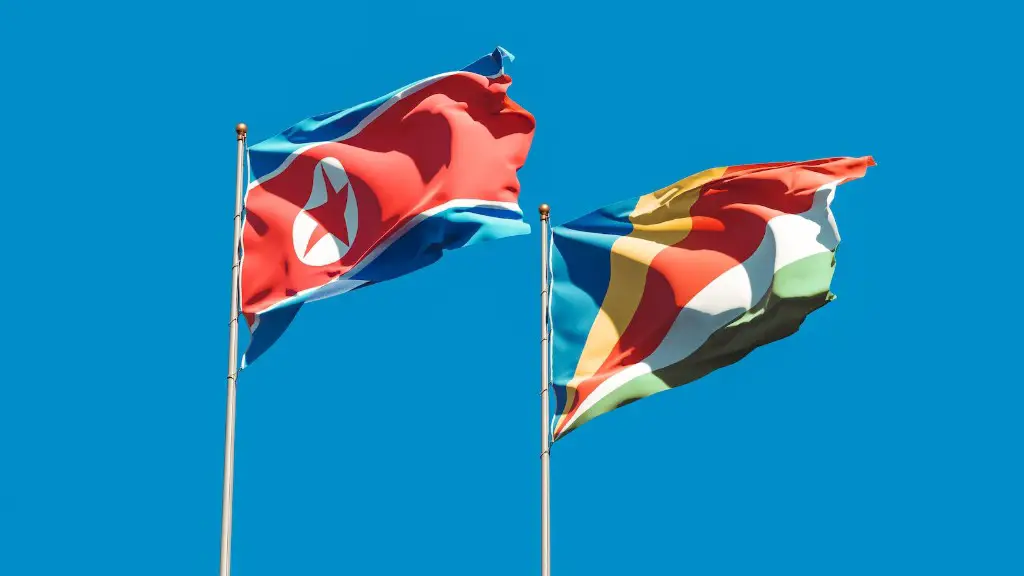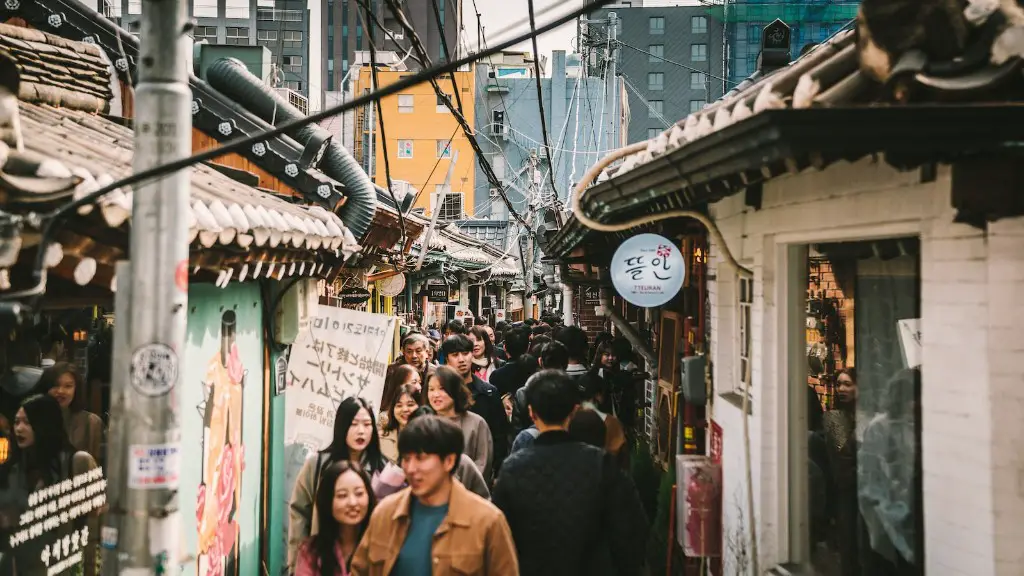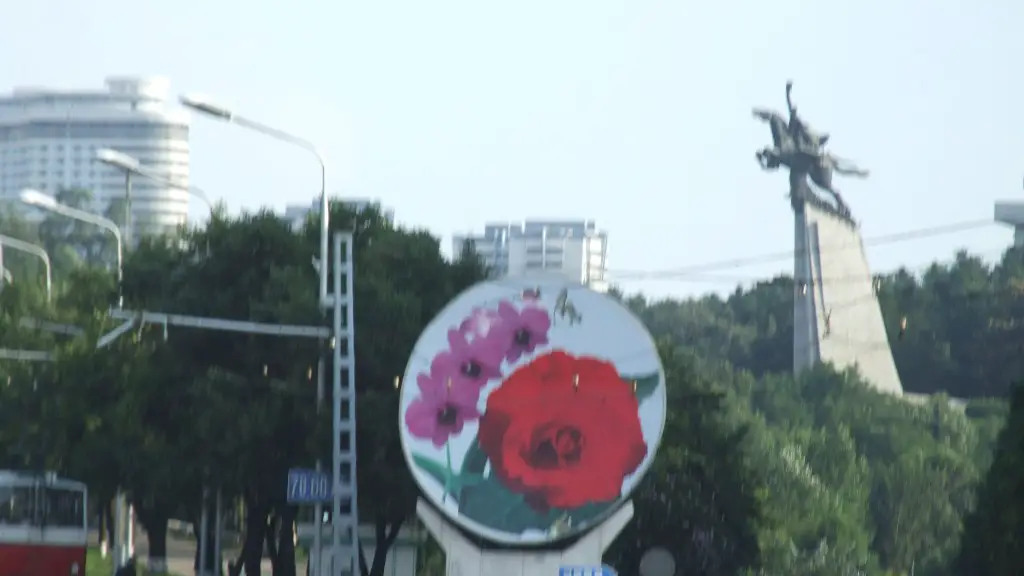What Can Be Done To Stop North Korea
The rogue dictatorship of North Korea has become one of the major threats to global peace and security. With its nuclear arsenal, ballistic missile capabilities and other advanced military capabilities, it poses a threat to both its neighbors and the wider international community. Over the years, numerous efforts have been made to stop North Korea and bring it to the negotiating table, but so far all have failed.
In order to effectively deal with North Korea, it is important to understand the reasons behind its belligerent policies. At the heart of North Korea’s behavior lies its regime’s desire to ensure its own survival. For the past several decades, North Korean leaders have cultivated a cult of personality around their leader, Kim Jong-Un, and have used fear tactics to control their populace. In the absence of economic or political stability, North Korea’s leaders have found nuclear weapons to be an effective way to keep the people in line and to obtain concessions from the international community.
In recent years, the international community has increased its efforts to pressurize North Korea and push it towards denuclearization. This has included an increase in economic sanctions against the regime and its supporters, as well as a series of diplomatic negotiations with various countries. These efforts have yielded some success, with North Korea agreeing to limit its nuclear weapons program and hold talks with the United States and other countries. However, these efforts have so far not been enough to persuade North Korea to fully dismantle its arsenal.
In order to make real progress in thwarting North Korea’s nuclear ambitions, the international community must pursue a more holistic approach. This should involve an open dialogue with the North Korean regime and strengthen economic and diplomatic ties in the region. As well as this, the international community should support pro-democracy movements inside North Korea and provide aid to those affected by its oppressive policies. In addition, the international community should be ready to implement more stringent sanctions and increase pressure if North Korea does not comply with its commitments.
To ensure sustainable peace, the international community should put in place a comprehensive disarmament system. This should ensure that North Korea’s nuclear weapons are completely and verifiably eliminated. At the same time, measures should be taken to provide North Korea with incentives for giving up its arsenal, such as access to international markets and assistance in economic development. Finally, robust steps should be taken to ensure that North Korea does not again pursue nuclear weapons.
Addressing Humanitarian Needs
The situation of human rights in North Korea is dire. The regime has been accused of numerous human rights violations, including arbitrary detention, torture and enslavement. According to a report released by the United Nations Human Rights Council (UNHRC), North Korea is still one of the worst violators of human rights in the world.
Given the dire human rights situation in North Korea, it is important to address the issue. The international community should take steps to put in place a mechanism for monitoring and reporting any human rights abuses that are committed in the country. International aid should also be increased to support North Korean refugees and those affected by the regime’s policies. International forums and organizations should keep North Korea’s human rights record under review and hold the regime to account for any transgressions.
In addition, governments and civil society organizations should work together to raise awareness of the human rights abuses in North Korea. This could include organizing campaigns around the world and highlighting the plight of North Korean citizens. The international community should also use diplomatic and economic pressure to push North Korea to comply with international standards on human rights.
Engaging with Civil Society
Despite its oppressive nature, North Korea has a vibrant civil society and a growing network of independent groups and individuals. These groups are crucial in challenging the regime’s oppressive policies and promoting a more tolerant society. In addition, they provide a critical source of information on the situation inside the country, and can help to enact meaningful change.
The international community should work to engage with North Korea’s independent civil society. This could involve direct dialogue and the exchange of ideas, as well as providing access to outside sources of assistance. Governments should also look to make support available to civil society actors in the region, in order to increase their ability to effectively challenge the regime’s behavior.
In addition, international organizations should seek to support civil society initiatives in North Korea. This could include providing funding for education and capacity building programs, as well as other forms of technical support. Such initiatives would help to increase the effectiveness of North Korea’s civil society and create an environment in which it can challenge the regime more effectively.
Strengthening International Collaboration
In order to effectively address the threat posed by North Korea, it is critical that the international community works together. This means not only working in partnership with regional players, but also developing a multilateral approach to tackling the issue. This could include setting up a coordinated response mechanism to ensure that the international community is responding in a unified way.
The international community should also work towards increasing communication and dialogue with North Korea. This could involve developing a communication platform for official talks, as well as encouraging informal contact through diplomatic missions, cultural exchanges and sports competitions. Such efforts should be supplemented with economic and social incentives to persuade North Korea to engage in negotiations.
Finally, the international community should strengthen multilateral initiatives in the region. This could include working with regional players such as South Korea, China and Japan to strengthen economic and diplomatic ties. At the same time, measures should be taken to ensure that any efforts to engage North Korea are carefully managed, in order to avoid any attempt by the regime to manipulate the situation.
Conclusion
North Korea is a complex and dangerous regime, and addressing its ambitions and behavior requires a coordinated and comprehensive approach. The international community must work together to engage the regime and address both its nuclear ambitions and human rights abuses. In order to do this, it is important to emphasize dialogue and cooperation, as well as taking measures to strengthen North Korea’s civil society and international collaboration.



